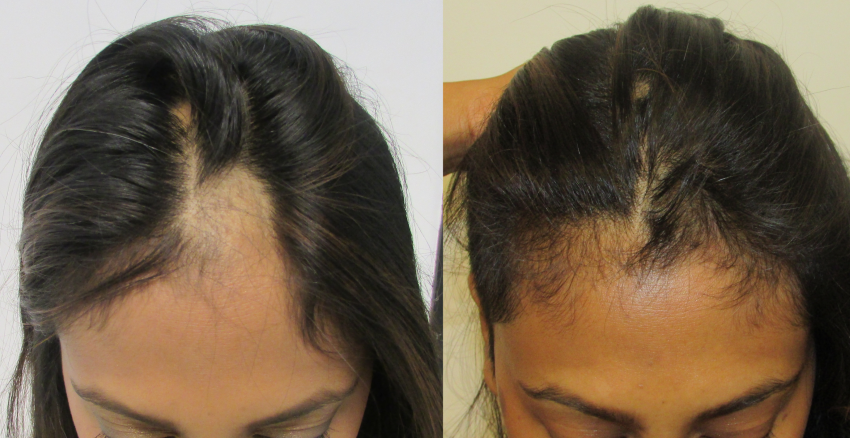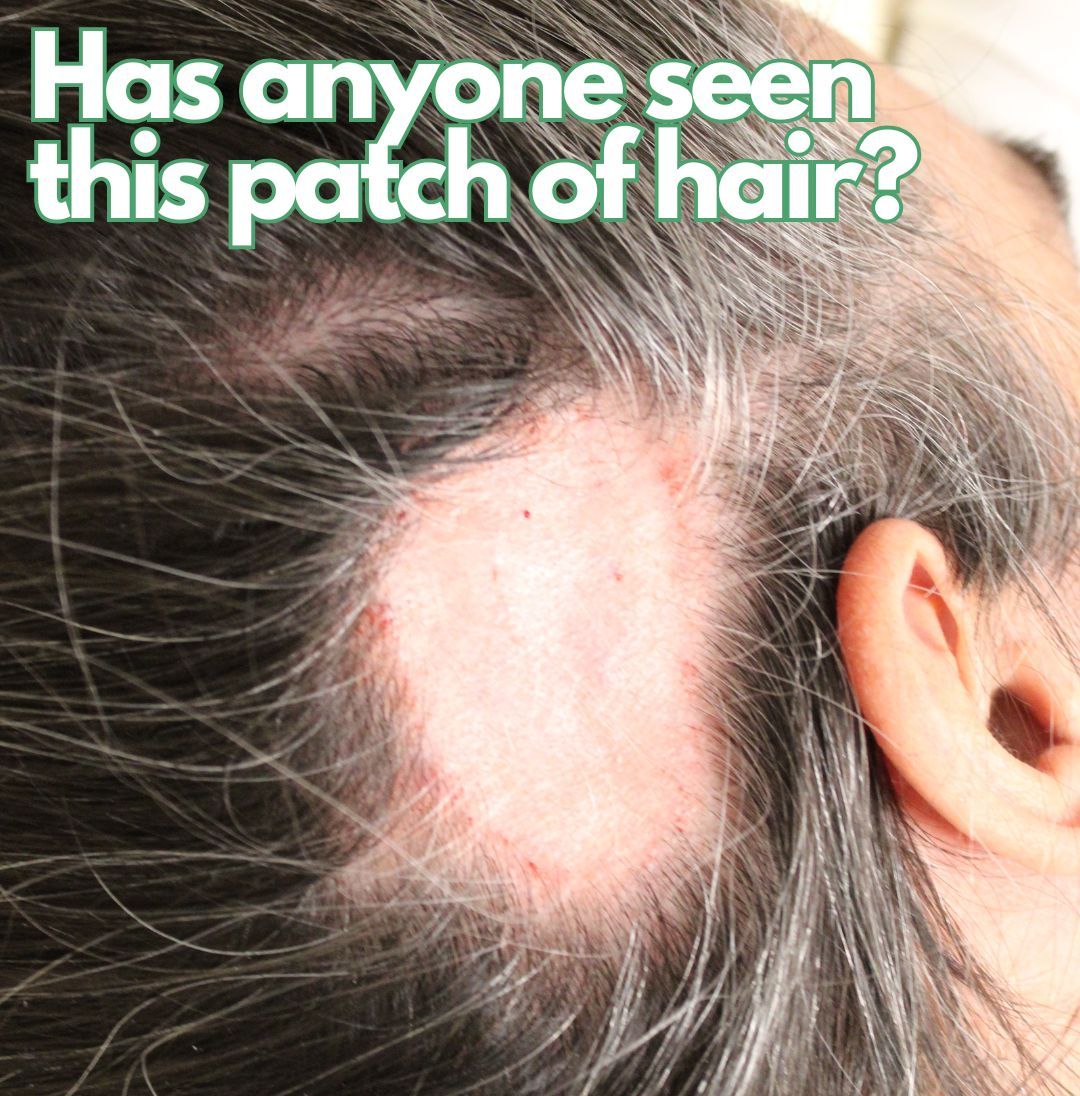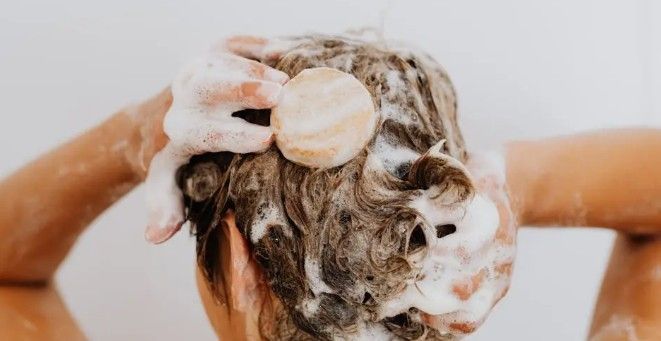Stress and Our Bodies
Types of Stress - Symathetic Nervous System

If you have been to see us for your hair loss assessment, you will know that hair loss is more complex than most people think.
There are a number of factors that impact your hair health and hair growth, just like a puzzle. The puzzle pieces include:
- Inherited enzyme defects – sometimes affecting more than one enzyme.
- Diet and Nutritional Factors – we are what we eat, and the food we eat impacts our health more than most of us realize.
- Habits – there are some habits and supplements that can impact our health and hair health, things like alcohol, cigarettes and supplements like pine or bee pollen and Creatine plus more.
- Stress – stress also has a big impact on our hair and overall health in many ways. This is one that is often difficult to pinpoint, so today we will talk more about stress.
My name is Gabrielle and I’m a stress management consultant. I already work with many Stop and Regrow clients to help them manage their stress to stop it affecting their daily lives and their hair.
Today I’m going to be sharing a deeper understanding of stress. Once you understand stress and how your body responds, it can be easier to manage and overcome.
What is Stress?
There are many different definitions of stress, and different types of stress. The American Institute of Stress has defined four main types:
- Acute Stress – sympathetic nervous system preparing itself to defend – fight, flight or freeze.
- Chronic Stress – generally brought on by things like cost of living, family life, work – we tend to ignore this stress or push it down.
- Eustress – stress in daily life that has positive connotations such as a job promotion, marriage, baby.
- Distress – stress in daily life that has negative connotations such as financial difficulty, divorce, injury.
Your Nervous System and Stress
Your nervous system is responsible for sending and receiving communication between the brain and all the other cells, tissues and organs. It is the hardwiring of your body, taking messages from your brain to organs, muscles, and glands. Neurons are the structural and functional units of your nervous system and can be divided into 4 categories.
- Cranial Nerves – connecting the 5 senses – hearing, seeing, smelling, tasting, and touch to the brain
- Central Nerves – connects the brain to the spinal cord.
- Peripheral Nerves – connects the brain to the extremities.
- Autonomic Nerves – connects the brain and spinal cord to the organs of the body.
When it comes to stress, your Autonomic Nervous System plays a major role, and is divided into two subsystems: The Sympathetic Nervous System (SNS) and the Parasympathetic Nervous System (PSN).
Today we’re going to focus on the Sympathetic Nervous System (SNS).
You might have heard of the term fight or flight. Well that corresponds to your SNS. Its primary role is to provide optimal conditions for response to threat. It controls your organs and glands during that flight or fight response.
What is the fight or flight response?
There are three components – fight, flight or freeze, and one of the best examples of how it works comes from the animal kingdom. Let’s picture a classic scene from a David Attenborough wildlife documentary with a predator and prey. Through the prey’s senses it can tell if there is a predator close by, so it has a choice about how to react:
- One – is he strong enough to fight?
- Two – is he fast enough to flight (run)?
- Three – after weighing up both the former options he realizes that neither will work – so he decides to freeze in the hopes he will camouflage, and go undetected.
Once he feels that the predator has gone and he is safe, he then vigorously shakes his body. This is a very important step, that us human beings forget to do. We have the same stress response, but once we experience a stressor, we hold the stress in our bodies instead of moving it out and releasing.
Animals instinctively know the importance of shaking their stress out after they have been under threat. We as human beings hold our issues in our tissues, which can result in dis–ease. Not being at ease in our body and/or mind, manifesting in physical or mental ill-health.
The good news is that we can learn to be in control of our bodies and minds!
One of the first steps to controlling our bodies and minds to manage our stress - is with better breathing!
Going forward I’ll be sharing short videos, and blogs on everything from better breathing to stress management techniques that can help keep your stress at bay.
I also offer different courses on stress reduction that go more in depth on the science of stress, plus provide more detailed techniques that you can apply in your lives starting today!
Gabrielle offers our Stop and Regrow clients a free 30 minute introductory session to learn your personal stressors and some introductory techniques to help overcome them. If this is something you are interested in - reach out to your Stop and Regrow Hair Regrowth Consultant today.
Gabrielle Lewis Biography
My name is Gabrielle, and I’m the founder of Next Level Wellness. Our mission is to deliver an integrative approach in empowering the individual in understanding, and supporting their mental health, which surrounds three key principles: Education, Experience, and Evolution. I already work with many Stop and Regrow clients helping them manage their stress to stop it affecting their daily lives and their hair.
Specializing in mental health and stress management, I offer workplaces ways for employees to deal with stress, and increase productivity. As well as teaching in the workplace, and working with individuals in a private setting, my love of sharing the teachings with all ages has found myself teaching in schools to children as young as two, teenagers who are in recovery from substance abuse or dealing with anxiety and depression at both in-patient and out-patient rehab facilities, teenagers with special needs, young adults - teaching credited classes at Mount Saint Mary's University and to seniors at Brookdale Assisted Living Home. I also work with a Special Forces Unit who serve all over the world, providing them with tools that they can apply to help them be more effective, as well as coping strategies for PTSD.
For the last four years I’ve been involved in multiple teacher training programs, serving as a mentor, and teacher trainer, and I’m in the final stages of creating my own 200 hour training specifically for residential, and out-patient mental health facilities. I feel the current infra-structure with how we serve mental health needs an up-leveling, and it is part of my mission to be at the forefront of this. In addition, I believe in evidence based data, and I’m currently involved in research projects at University of Southern California, and Mount Saint Mary's University under the advisement and mentorship of Assistant Professor of Medicine, and Associate Neuro-scientist at Harvard Medical School.
My raison d’etre is to be of service – serving individuals in finding inner peace, compassion and tolerance, so we can create outer peace compassion and tolerance. “Be the change we wish to see in the world” - Ghandi.
Testimonials
“Guru, you saved a life today. I can’t give the details except to say that you made it possible for me to be more effective at my job, and because of that someone else gets to live and go home to their family. You have done your country proud. Thank you.” – JD Afghanistan
“YOU are AMAZING so strong and driven to lead us all to success and to understand that YES WE CAN achieve and realize our highest potential AND that we can overcome ALL our perceived difficulties and challenges!! - Tracy
You can learn more about Gabrielle and Next Level Wellness on her website here: www.nextlevelwellness.co










